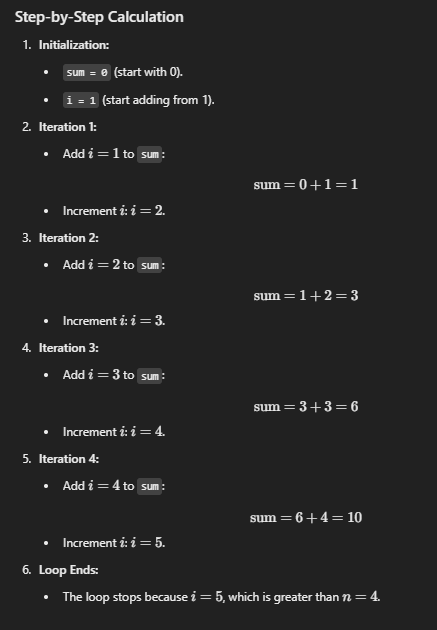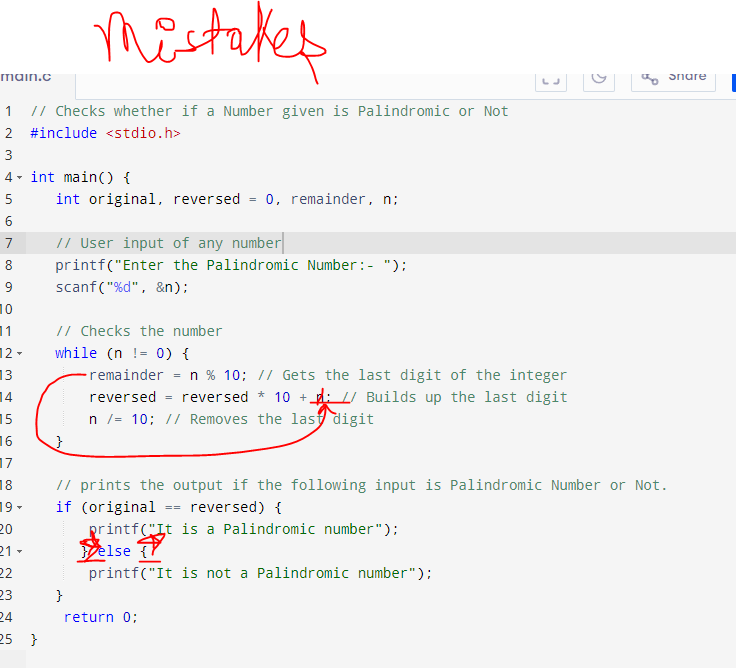- If YES, proceed to calculate the grade.
- If NO, print "FAILED" and stop.
- If average >= 80, assign grade 'A'.
- Else if average >= 65, assign grade 'B'.
- Else if average >= 45, assign grade 'C'.
- Else if average >= 33, assign grade 'D'.
- Else assign grade 'F' (failed).
#include <stdio.h>
int main() {
int sub1, sub2, sub3, total;
float average;
char grade;
// Input marks for 3 subjects
printf("Enter marks of 1st Subject: ");
scanf("%d", &sub1);
printf("\nEnter marks of 2nd Subject: ");
scanf("%d", &sub2);
printf("\nEnter marks of 3rd Subject: ");
scanf("%d", &sub3);
// Total Marks and Average
total = sub1 + sub2 + sub3;
average = total / 3.0;
// Check if passed
if (sub1 >= 33 && sub2 >= 33 && sub3 >= 33) {
printf("\nTotal Marks: %d", total);
printf("\nAverage Marks: %.2f", average);
// Grade calculation using if...else if ladder
if (average >= 80) {
grade = 'A';
} else if (average >= 65) {
grade = 'B';
} else if (average >= 45) {
grade = 'C';
} else if (average >= 33) {
grade = 'D';
} else {
grade = 'F'; // F for fail if below 33
}
// Display grade using switch statement
switch(grade) {
case 'A':
printf("\nStudent has A grade.");
break;
case 'B':
printf("\nStudent has B grade.");
break;
case 'C':
printf("\nStudent has C grade.");
break;
case 'D':
printf("\nStudent has D grade.");
break;
case 'F':
printf("\nStudent has FAILED, advised to re-take exam.");
break;
default:
printf("\nInvalid grade.");
}
} else {
printf("\nStudent has FAILED, advised to re-take exam.");
}
return 0;
}




